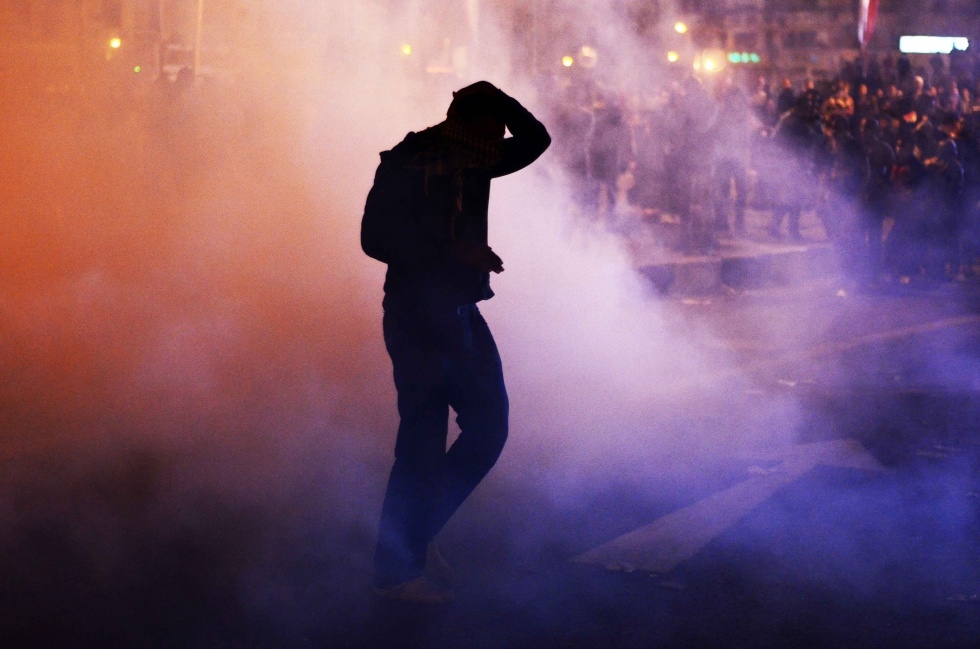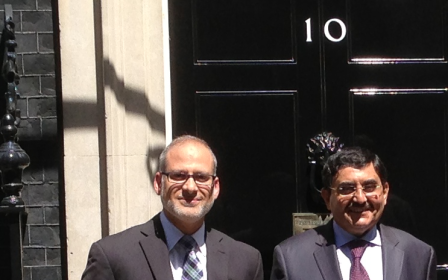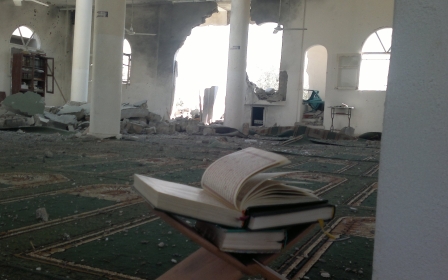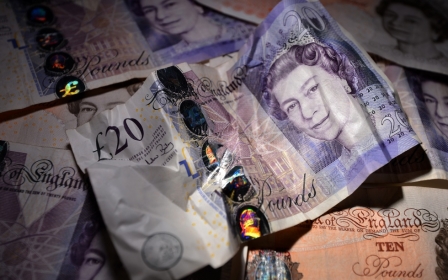Exclusive: Britain cancels three arms contracts to Sisi's Egypt

Britain cancelled export licenses for three arms contracts to Egypt’s military backed government in October last year, fearing the arms would be used for internal repression, the Middle East Eye can reveal.
The contracts were cancelled during a prolonged correspondence between officials of the Department for Business Innovation and Skills (BIS) and the legal team acting on behalf of the Muslim Brotherhood’s Freedom and Justice Party. The lawyers claim that it was a result of their representations that a second review of the contracts was carried out in October. An earlier blanket suspension was implemented in August last year, after the mass shootings of protesters in Cairo.
Edward Bell, head of export control and organization wrote to ITN solicitors on 13 January that “we consider there is now sufficient information available about the situation in Egypt to consider each extant licence and new application on a case-by-case basis rather than applying the blanket suspension which we implemented in August”.
Bell said his division investigated all extant export licenses to Egypt and had reinstated those where "we do not judge that the equipment might be used for internal repression." However, the review also led BIS to revoke three new licenses in which there was "a clear risk" that the materials exported might be used for internal repression, including crowd control, he wrote. The BIS did not reveal the nature of the contracts.
ITN claims the licenses were cancelled as a result of a Freedom of Information Act request they made on 23 September which triggered a further review of the licenses by BIS.
Stay informed with MEE's newsletters
Sign up to get the latest alerts, insights and analysis, starting with Turkey Unpacked
Ravi Naik of ITN said: “It is clear that following our requests in September, BIS conducted a further review. Following that review, BIS suspended the three licenses in October. There was no new information on the ground in October 2013 to carry out a review. The only change was our representation which leads to the government asking for a further review. Following that, further licenses were revoked.”
News of the cancelled licenses will further complicate the inquiry ordered by the British Prime Minister David Cameron. The inquiry, led by Sir John Jenkins, the British ambassador to Saudi Arabia, will draw on assessments by MI5 and MI6 and looking into the organisation's "philosophy and values and alleged connections with extremism and violence." Sir John Sawers, head of MI6 and former UK ambassdor to Egypt between 2001-2003, was expected to play an important role in the inquiry.
When the MEE revealed last month that Cameron had invited Gehad El-Hadad, the Brotherhood’s international spokesman to lunch at Chequers, Downing Street responded by saying that the Brotherhood was in power at the time in Egypt and it was entirely appropriate for Britain to engage with it. The Chequer’s lunch came ahead of a scheduled visit by Dr Mohammed Morsi, who was president at the time.
The correspondence between the FJP's legal team and the BIS reveals substantial government contact long after former army chief Abdel Fattah al-Sisi took over as defense minister of Egypt.
FJP officials say they have yet to hear at all from the Jenkin's inquiry. However, a page on the Downing Street website, posted on 17 April, offers anyone in the public an opportunity to submit evidence about the organisation to the inquiry.
When the Jenkins inquiry was announced, briefings were given to lobby correspondents saying that the inquiry would examine whether or not a bomb attack on a tourist bus in the Sinai Peninsula, which killed three South Korean tourists and the Egyptian driver, had been ordered by the Muslim Brotherhood in Britain. The Downing Street page makes not reference to any terrorist related activity and ITN lawyers claim that, according to their sources, that element of the inquiry has already been discounted.
A senior Egyptian official said last week that the country's Justice Minister Neir Osman met with UK ambassador James Watt in late April and asked him to talk to London about freezing the assets. In December, Egypt officially declared the Muslim Brotherhood a terrorist group.
Middle East Eye delivers independent and unrivalled coverage and analysis of the Middle East, North Africa and beyond. To learn more about republishing this content and the associated fees, please fill out this form. More about MEE can be found here.




